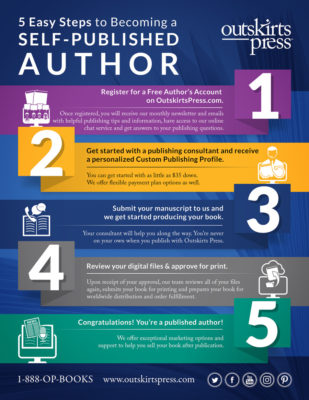What Does Self-publishing Accomplish?
The publishing landscape has changed drastically since I first started working full time as a writer back in 2002. Then traditional publishers ruled the roost, and Christian houses associated with the Evangelical Christian Publishing Association bowed to the dictates of the almighty Christian Booksellers Association (CBA). Almost all Christian book stores were beholden to the CBA and what “they” said their customers wanted. And general market book stores cloistered books published by Christian houses, even the fiction, in a “religion” section.
Christian speculative fiction was in no man’s land. Christian publishers didn’t want it. In fact, one editor told me that his house would never publish fantasy. Ever. General market houses weren’t looking for stories, even speculative ones, that had an overt gospel message. Self-published books did not have a good reputation, but that was often the only option left open to Christian speculative writers.
 Now, a mere fifteen years later, things are different. Radically different. That editor I mentioned who said his house would never publish fantasy? He’s acquired at least two fantasy authors that I know about. In addition, Amazon. Now there’s an outlet for self-published books that did not exist before. And e-books. Publishing no longer requires a company; e-readers have made stories by anyone available to the public.
Now, a mere fifteen years later, things are different. Radically different. That editor I mentioned who said his house would never publish fantasy? He’s acquired at least two fantasy authors that I know about. In addition, Amazon. Now there’s an outlet for self-published books that did not exist before. And e-books. Publishing no longer requires a company; e-readers have made stories by anyone available to the public.
I could go on about book store closures, both general market and Christian, and about the proliferation of small presses that do not adhere to the strictures of the CBA. I’ll just mention the shrinking number of traditional Christian publishers, some no longer putting out fiction and some bought up and re-imaged as an imprint of one of the general market publishers
But perhaps most revolutionary has been the ease of and the more positive attitude toward self-publishing. Now, quite realistically, anyone can publish a book, and we’re not just talking about e-books.
Many people have opted for self-publishing with the dream of becoming rich. A few people have, in fact, sold so well that they have garnered attention from the media, and have made their authors a good deal of money. After all, there are no middlemen.
But is such selling success the norm? Not at all, just as every traditionally published book won’t make it to the New York Times best-seller list.
So why self-publish? You have no public relations arm of a traditional house getting the word out about your book. You have to do that yourself. But the reality is, even with traditionally published books, the PR offered an author is minimal. Mostly authors are expected to do the work themselves.
So if authors are to promote their own book anyway, the thinking goes, why not self-publish?
Why not?
Not so long ago, book awards were not open to self-published works. For example, a few short years ago, self-published books were not eligible for the Pulitzer Prize, for the Christy Award, or the Carol Award. As late as August 2013, The Guardian ran an article entitled “Why is self-publishing still scorned by literary awards?” that noted
Most literary awards are closed to self-published books. Entry criteria for the Booker prize state that “self-published books are not eligible where the author is the publisher or where a company has been specifically set up to publish that book”, while the Bailey’s women’s prize for fiction stipulates that books must come from a “bone fide imprint”.
Four years later, that article is obsolete.
Less than a decade ago there were actually perceived publishing wars between authors, as addressed in a Forbes article produced five years ago. The author, David Vinjamuri, had this to say about the attitude of authors in the general market:
There is something very odd about this war of words between successful authors on different sides of a tectonic shift in the publishing world: it doesn’t exist in many similar industries facing the same sort of technological upheaval. You don’t hear Christina Aguilera or Adam Levine knocking indie bands. Instead they joined a show called “The Voice” which aims to capitalize on the credibility of indie artists by finding journeyman artists and giving them a shot at major label contracts. Indie filmmakers are revered, not reviled, partly because they eschew the studio system and its constraints on artistic expression. And the art world seems keenly attuned to the idea that the next Georgia O’Keeffe might be producing revolutionary work somewhere out of their sight from “Publishing Is Broken, We’re Drowning In Indie Books – And That’s A Good Thing”)
 But things have changed!
But things have changed!
For example, self-publishing co-ops have come into being that help authors with things like editing, book covers, formatting, and promoting. The end result is a good product, and the author reaps the benefit of books sold.
Still, promotion remains the fly in the honey pot of self-publishing success. How can a writer distinguish himself from all the other books—traditional, small press, and self-published—that are out there?
One answer, among many others, is to utilize Spec Faith’s library, both as a reader and as a writer. Books here, whether self-pubbed or traditional, are on an even footing. All they need are reviews to point other visitors to the ones to buy.
Another answer is to get involved with the Lorehaven project to introduce book clubs to churches. As someone involved in the process, you might be able to insert self-pubbd books into consideration.
But in the end, what does self-publishing accomplish? The number one answer to that question is, it breaches the barrier that used to exist, preventing many good writers from getting their work into print.
Will it make an author rich? Will it provide a living wage? Maybe, but the percentages of such are low.
Will it give books a chance that would otherwise have none? Absolutely. If a book has what publishers perceive as a “niche” audience, they were not inclined to publish them. If some content crossed some forbidden line, those books were not picked up either. But with self-publishing, the risks—and the rewards—are all the authors. So publishing, which once seemed like an endeavor by only a select few, decided by self-appointed experts, is now open to anyone willing to put in the work. The level of success is up to the author. And the definition of success is also up to the author.









































Good article, good perspective and overview. Thanks.
Excellent thoughts and spot on. It’s great to hear that literary awards have warmed to independent authors as well. And I really like your comparison with the music industry.
I do think traditional markets do still have vestiges of prestige in certain circles, even if most authors there really aren’t making much money (in the majority of cases).
I decided to self-publish after hearing about the experiences of several authors, but one in particular, who gave a workshop I attended, stood out. He was published by one of the big publishing companies, but was getting almost nothing in the way of promotion. He had a friend who was helping him with his website and another one who helped him with his book trailer (neither of which were all that impressive in my opinion). Sure, the company gave him an editor and a nice book cover, but not much else. Independent authors have learned that they can pay for these costs themselves.
There are also a number of other advantages independent authors have over traditionally published authors. Authors with a publisher can have their books pulled and taken out of print. Royalty payments can be delayed. Books take longer to come to market. Books are not always priced competitively. The publishing company can make edits or cover choices the author doesn’t like. And on and on it goes.
So three cheers for self-publishing and the openness to new fresh voices in storytelling! Now if we could just get the Christian public to start reading more…(but that’s another article altogether)